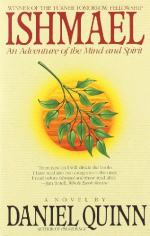
|
| Name: _________________________ | Period: ___________________ |
This quiz consists of 5 multiple choice and 5 short answer questions through Chapter 9.
Multiple Choice Questions
1. How does Ishmael respond when the narrator says that he does not believe that he is part of a story?
(a) He says that it is easier to believe in more incredible things
(b) He says that belief is unimportant
(c) He says that belief is less important than action
(d) He says that belief is the beginning of resistance
2. What does the narrator say his relationship with Nazi Germany is?
(a) He is unaware of the details of Nazi rule
(b) He is moderately well informed about it
(c) He has always gone out of his way to avoid learning about it
(d) He is a student of it
3. What does the narrator say the ad in Chapter 1 was looking for?
(a) Someone who wanted to change the world
(b) Someone who wanted to work with gorillas
(c) Someone who wanted to make an investment
(d) Someone who wanted to teach
4. In Chapter 3, how does Ishmael tell the narrator to think, when he tries to get him to see the myth of his culture?
(a) Imaginatively
(b) Mythological
(c) Counter intuitively
(d) Like a child
5. What does Ishmael say keeps nature in balance?
(a) The migration of birds and whales
(b) The process of natural selection
(c) The cycle of the seasons
(d) The relationship between feeders and predators
Short Answer Questions
1. What does Ishmael tell the narrator to do, when the narrator cannot say what man’s destiny is in Chapter 5?
2. How does the narrator characterize the 1960s?
3. What does Ishmael say he can offer the narrator in Chapter 3?
4. How does Ishmael characterize the Takers’ response to the law he and the narrator discuss in Chapter 8?
5. What does Ishmael say is the purpose of Mother Culture’s story?
|
This section contains 398 words (approx. 2 pages at 300 words per page) |

|




